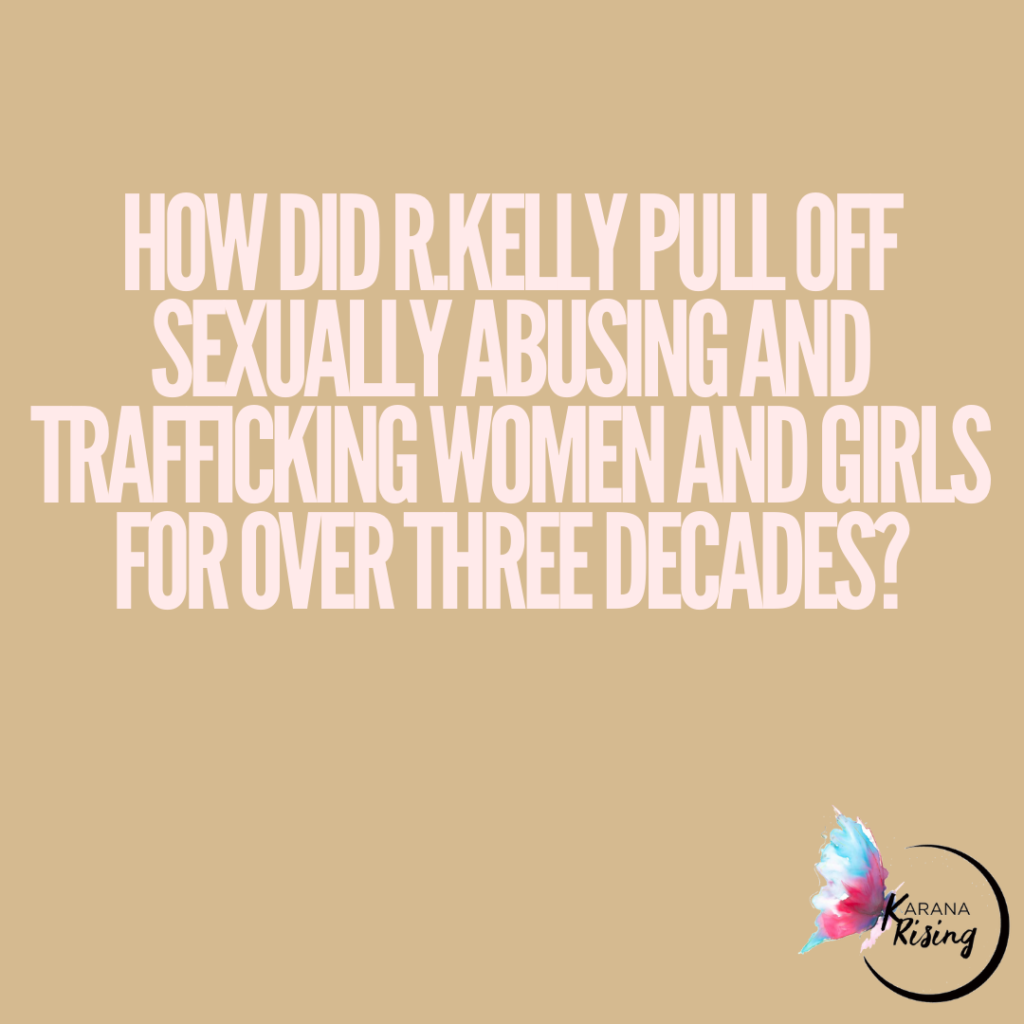When a celebrity like R. Kelly goes on trial for multiple counts of sex trafficking, it makes the news. After daily global coverage, a conviction seems like the end of the sensational story. It seems like justice is served and this celebrity predator got his #MeToo. It seems like an anomaly and now we can safely move on.
Only, R.Kelly’s tactics of force, fraud and coercion used to sex traffick women and girls around the world for three decades are actually typical of the average pimp. What is also typical is that survivors rarely receive full justice and the survivors known as “Jane Does” in the R. Kelly indictment documents did not either.

R. Kelly had a network of associates known as “Enterprise” who helped him for decades to conceal his violent crimes. Like other pimps, R. Kelly used a network of recruiters, transporters and enforcers to commit multiple acts of sexual exploitation and sexual abuse for his own profit and pleasure. Their enablement played a critical role in how R. Kelly could continue his sexual exploitation and trafficking of so many women and girls.
Sex trafficking, defined in the United States under the Trafficking Victims Protection Act of 2000 (TVPA) and amended by the Justice for Victims of Trafficking Act of 2015 (JVTA) defines sex trafficking as the “recruiting, harboring, transporting, providing, obtaining, patronizing, or soliciting of an individual through the means of force, fraud, or coercion for the purpose of commercial sex.” Many of the acts of members of Enterprise fall squarely into this definition.
Survivor justice means that everyone who benefits from the exploitation of trafficking victims, like the Jane Does, should be held legally accountable. They should also be required to pay for their crimes.

His “pimp” rules, enforced by the Enterprise members, included not allowing his victims, some as young as 12, to leave the room where he confined them without his permission, including to eat or shower. They were forced to wear what he chose for them and were not allowed to make eye contact with other men. Finally, like pretty much every other pimp on the planet, he forced them to call him “daddy.” They were isolated from family and friends who could have helped them and forced into a state of total financial stability.
These rules mirror those of a violent trafficker whose then 17 year old victim, Tiffany Simpson, was also not allowed to leave and when she tried, he stabbed her in the leg and threatened to kill her unborn child. After he used Tiffany to sexually exploit another teen girl, the police arrested and sentenced Tiffany herself to 30 years in prison. She has now been incarcerated for 10 years in Pulaski State prison while she advocates for her freedom and that of other incarcerated victims like Jessica and Jordan Hampton.
“To the survivors whose lives were blown apart by the abuse and exploitation of R. Kelly, I believe you. I understand this is hard but you didn’t just testify for your own justice, you are paving a path to freedom for survivors like me. You are making it easier for survivors to be believed. I hope you see your power. I do.” says Tiffany Simpson from behind the walls of prison.
Trafficking victims rarely receive justice because many are not believed. Many do not know they are even victims because they believe that they consented to their own exploitation. However, no one can consent to being enslaved through human trafficking.
Traffickers prey upon the vulnerabilities of their victims. This includes dreams of a better life. The young women and girls who R. Kelly and his associates preyed upon had dreams of becoming singers, artists and dancers. They sought validation, love and a chance to shine. R. Kelly had the means to actually help them. Only, his intention was never to help, his plan was to exploit and abuse them. Traffickers like R. Kelly will tell their victims that no one will believe them if they try to get help. In the case of the “Jane Does,” no one did for decades.
The criminal justice system must change in order to protect survivors and ensure they are treated as the victims. However, far too often, traffickers get away with their crimes because law enforcement, defense attorneys, prosecutors and judges do not understand how trafficking happens. This is why survivor leadership to reform the legal system to fully protect victims is critical. Survivors know how trafficking happens, what signs to look for and what ways to best ensure survivors are found, heard and served. Only, their lived-expertise is often overlooked and so traffickers like R. Kelly keep getting away with their crimes while their victims suffer in silence and fear.
R. Kelly ruined so many lives. His conviction is a part of the justice that survivors he exploited need to heal. Only, it’s not enough. We need a legal system that ensures everyone who enables traffickers to exploit and abuse their victims is held fully accountable. We need to stop the arrest of trafficking victims, too. To do this, we have to start seeing and believing survivors today.
By Andrea Powell, Karana Rising.



